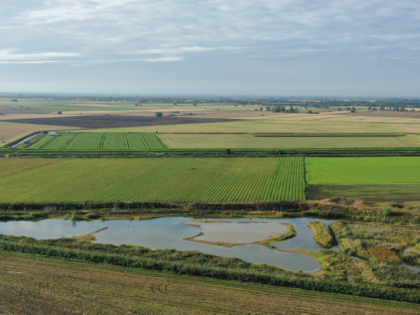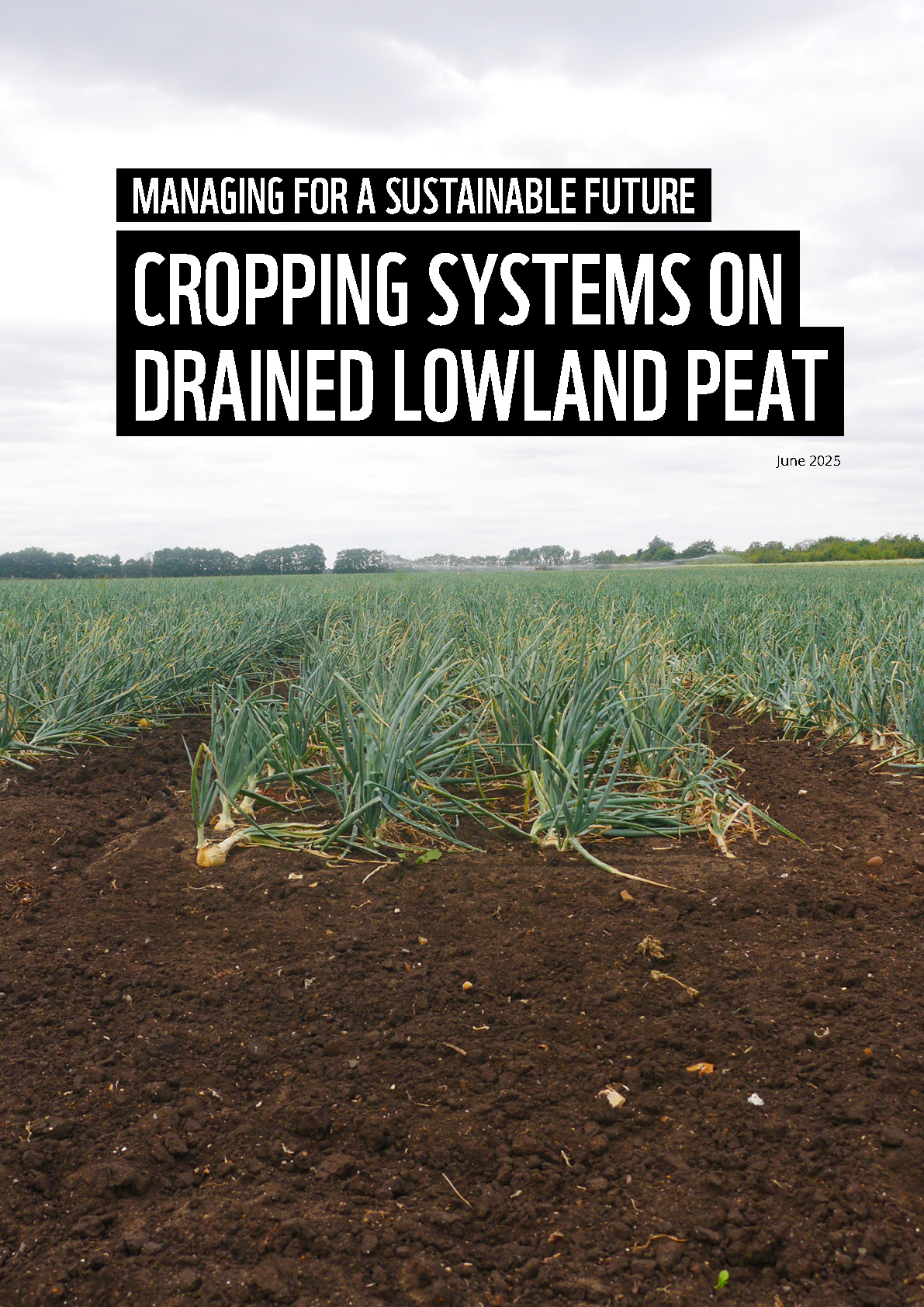- About
-
Research
- Agronomy and farming systems
-
Agricultural crop research
-
Research projects - agriculture
- About SASSA-SAI
- BioBoost
- Biomass Connect
- CTP for Sustainable Agricultural Innovation
- Climate Ready Beans - workshop presentations (March 2022)
- Crop diversity HPC cluster
- Designing Future Wheat
- Final project workshop
- Get involved
- List of materials
- News and updates
- Partners
- Rustwatch
- The Sentinel Crop Disease Surveillance Network
- The research team
- UK Cereal Pathogen Virulence Survey
- UK wheat varieties pedigree
- Weed management - IWM Praise
- Crop breeding
- Crop characterisation
- Data sciences
- Genetics and pre-breeding
- Plant biotechnology
- Plant pathology and entomology
- Resources
-
Research projects - agriculture
-
Horticultural crop research
-
Research projects - horticulture
- Augmented Berry Vision
- BEESPOKE
- Boosting brassica nutrition in smart growing systems
- CTP for Fruit Crop Research
- Develop user-friendly nutrient demand models
- Egg laying deterrents for spotted wing drosophila
- Enhancing the nutritional quality of tomatoes
- Improving berry harvest forecasts and productivity
- Improving vineyard soil health through groundcover management
- Intelligent growing systems
- Knowledge transfer for sustainable water use
- POME: Precision Orchard Management for Environment
- RASCAL
- STOP-SPOT
- UV-Robot
- Crop science and production systems
- Genetics, genomics and breeding
- Pest and pathogen ecology
- Field vegetables and salad crops
- Plum Demonstration Centre
- The WET Centre
- Viticulture and Oenology
-
Research projects - horticulture
- Crop Science Centre
- Research Projects
- Research Publications
-
Services
- Analytical Services
- Business Development
- Commercial trial services
- Membership
- Plant breeding
- Plant characterisation
- Seed certification
-
Training
-
Technical agronomy training
- Advanced crop management of bulb onions
- Advanced crop management of vegetable brassicas
- Advanced nutrient management for combinable crops
- Benefits of cover crops in arable systems
- Best practice agronomy for cereals and oilseed rape
- Developing a Successful Strategy for Spring Crops
- Disease Management and Control in Cereal Crops
- Incorporating SFI options into your rotation
- Protected Environment Horticulture – Best Practice
- Techniques for better pest management in combinable crops
- Crop inspector and seed certification
- Licensed seed sampling
-
Technical agronomy training
- News & Views
- Events
-
Knowledge Hub
- Alternative and break crops
-
Crop genetics
- POSTER: Diversity enriched wheat (2025)
- POSTER: Genetics of wheat flag leaf size (2024)
- POSTER: Wheat yield stability (2024)
- Poster: Traits for future cereal crops (2022)
- POSTER: wild wheat fragment lines (2022)
- POSTER: Improving phenotyping in crop research (2022)
- PRESENTATION: Plant breeding for regen ag
- Poster: Designing Future Wheat (2020)
- Crop nutrition
-
Crop protection
- POSTER: Understanding the hierarchy of black-grass control (2025)
- POSTER: Emerging weed threats (2025)
- POSTER: Disease control in barley (2025)
- Poster: Weed seed predation in regen-ag (2024)
- POSTER: Disease control in winter wheat (2025)
- POSTER: Mode of action (2023)
- POSTER: Inter-row cultivation for black-grass control (2022)
- POSTER: UKCPVS winter wheat yellow rust in spring 2025 (2025)
- Poster: Management of Italian ryegrass (2021)
- POSTER: UKCPVS winter wheat rusts - 2024/25 review (2025)
- POSTER: UKCPVS disease monitoring and the benefit to UK growers (2025)
- POSTER: Diagnosing and scoring crop disease using AI (2025)
- POSTER: Finding new sources of Septoria resistance (2024)
- POSTER: Fungicide resistance research (2024)
- POSTER: Detecting air-borne pathogens (2024)
- POSTER: Oilseed rape diseases (2024)
- POSTER: Fungicide resistance research (2024)
- POSTER: Improving chocolate spot resistance (2022)
- Poster: Pathogen diagnostics (2022)
- Fruit
- Regen-ag & sustainability
-
Seed certification
- POSTER: Wheat DUS (2024)
- POSTER: Innovation in variety testing (2024)
- POSTER: AI and molecular markers for soft fruit (2024)
- POSTER: Barley crop identification (2023)
- POSTER: Herbage grass crop identification (2023)
- POSTER: Herbage legume crop identification (2024)
- POSTER: Minor cereal crop inspecting (2023)
- POSTER: Pulse crop identification (2023)
- POSTER: Wheat crop identification (2023)
-
Soils and farming systems
- POSTER: Checking soil health - across space and time (2024)
- POSTER: Checking soil health - step by step (2024)
- POSTERS: Changing soil management practices (2022)
- Poster: Monitoring natural enemies & pollinators (2021)
- POSTER: Soil structure and organic matter (2024)
- POSTER: Novel wheat genotypes for regen-ag (2024)
- Video: New Farming Systems project (2021)
- Video: Saxmundham Experimental Site (2021)
- POSTER: Impact of prolonged rainfall on soil structure (2024)
- POSTER: Soil & agronomic monitoring study (2024)
- POSTER: The impact of rotations & cultivations (2024)
- VIDEO: Great Soils; soil sampling guidelines (2020)
- Poster: Soil invertebrates within arable rotations (2024)
- VIDEO: Soil health assessment (2021)
- POSTER: Saxmundham - modern P management learnings
- POSTER: Saxmundham - 125 years of phosphorus management
- Poster: Soil phosphorus - availability, uptake and management (2025)
- POSTER: Morley long term experiments (2025)
- POSTER: Exploiting novel wheat genotypes for regen-ag (2025)
- Video: Saxmundham Experimental Site (2021)
- Varieties

- About
-
Research
- Agronomy and farming systems
-
Agricultural crop research
-
Research projects - agriculture
- About SASSA-SAI
- BioBoost
- Biomass Connect
- CTP for Sustainable Agricultural Innovation
- Climate Ready Beans - workshop presentations (March 2022)
- Crop diversity HPC cluster
- Designing Future Wheat
- Final project workshop
- Get involved
- List of materials
- News and updates
- Partners
- Rustwatch
- The Sentinel Crop Disease Surveillance Network
- The research team
- UK Cereal Pathogen Virulence Survey
- UK wheat varieties pedigree
- Weed management - IWM Praise
- Crop breeding
- Crop characterisation
- Data sciences
- Genetics and pre-breeding
- Plant biotechnology
- Plant pathology and entomology
- Resources
-
Research projects - agriculture
-
Horticultural crop research
-
Research projects - horticulture
- Augmented Berry Vision
- BEESPOKE
- Boosting brassica nutrition in smart growing systems
- CTP for Fruit Crop Research
- Develop user-friendly nutrient demand models
- Egg laying deterrents for spotted wing drosophila
- Enhancing the nutritional quality of tomatoes
- Improving berry harvest forecasts and productivity
- Improving vineyard soil health through groundcover management
- Intelligent growing systems
- Knowledge transfer for sustainable water use
- POME: Precision Orchard Management for Environment
- RASCAL
- STOP-SPOT
- UV-Robot
- Crop science and production systems
- Genetics, genomics and breeding
- Pest and pathogen ecology
- Field vegetables and salad crops
- Plum Demonstration Centre
- The WET Centre
- Viticulture and Oenology
-
Research projects - horticulture
- Crop Science Centre
- Research Projects
- Research Publications
-
Services
- Analytical Services
- Business Development
- Commercial trial services
- Membership
- Plant breeding
- Plant characterisation
- Seed certification
-
Training
-
Technical agronomy training
- Advanced crop management of bulb onions
- Advanced crop management of vegetable brassicas
- Advanced nutrient management for combinable crops
- Benefits of cover crops in arable systems
- Best practice agronomy for cereals and oilseed rape
- Developing a Successful Strategy for Spring Crops
- Disease Management and Control in Cereal Crops
- Incorporating SFI options into your rotation
- Protected Environment Horticulture – Best Practice
- Techniques for better pest management in combinable crops
- Crop inspector and seed certification
- Licensed seed sampling
-
Technical agronomy training
- News & Views
- Events
-
Knowledge Hub
- Alternative and break crops
-
Crop genetics
- POSTER: Diversity enriched wheat (2025)
- POSTER: Genetics of wheat flag leaf size (2024)
- POSTER: Wheat yield stability (2024)
- Poster: Traits for future cereal crops (2022)
- POSTER: wild wheat fragment lines (2022)
- POSTER: Improving phenotyping in crop research (2022)
- PRESENTATION: Plant breeding for regen ag
- Poster: Designing Future Wheat (2020)
- Crop nutrition
-
Crop protection
- POSTER: Understanding the hierarchy of black-grass control (2025)
- POSTER: Emerging weed threats (2025)
- POSTER: Disease control in barley (2025)
- Poster: Weed seed predation in regen-ag (2024)
- POSTER: Disease control in winter wheat (2025)
- POSTER: Mode of action (2023)
- POSTER: Inter-row cultivation for black-grass control (2022)
- POSTER: UKCPVS winter wheat yellow rust in spring 2025 (2025)
- Poster: Management of Italian ryegrass (2021)
- POSTER: UKCPVS winter wheat rusts - 2024/25 review (2025)
- POSTER: UKCPVS disease monitoring and the benefit to UK growers (2025)
- POSTER: Diagnosing and scoring crop disease using AI (2025)
- POSTER: Finding new sources of Septoria resistance (2024)
- POSTER: Fungicide resistance research (2024)
- POSTER: Detecting air-borne pathogens (2024)
- POSTER: Oilseed rape diseases (2024)
- POSTER: Fungicide resistance research (2024)
- POSTER: Improving chocolate spot resistance (2022)
- Poster: Pathogen diagnostics (2022)
- Fruit
- Regen-ag & sustainability
-
Seed certification
- POSTER: Wheat DUS (2024)
- POSTER: Innovation in variety testing (2024)
- POSTER: AI and molecular markers for soft fruit (2024)
- POSTER: Barley crop identification (2023)
- POSTER: Herbage grass crop identification (2023)
- POSTER: Herbage legume crop identification (2024)
- POSTER: Minor cereal crop inspecting (2023)
- POSTER: Pulse crop identification (2023)
- POSTER: Wheat crop identification (2023)
-
Soils and farming systems
- POSTER: Checking soil health - across space and time (2024)
- POSTER: Checking soil health - step by step (2024)
- POSTERS: Changing soil management practices (2022)
- Poster: Monitoring natural enemies & pollinators (2021)
- POSTER: Soil structure and organic matter (2024)
- POSTER: Novel wheat genotypes for regen-ag (2024)
- Video: New Farming Systems project (2021)
- Video: Saxmundham Experimental Site (2021)
- POSTER: Impact of prolonged rainfall on soil structure (2024)
- POSTER: Soil & agronomic monitoring study (2024)
- POSTER: The impact of rotations & cultivations (2024)
- VIDEO: Great Soils; soil sampling guidelines (2020)
- Poster: Soil invertebrates within arable rotations (2024)
- VIDEO: Soil health assessment (2021)
- POSTER: Saxmundham - modern P management learnings
- POSTER: Saxmundham - 125 years of phosphorus management
- Poster: Soil phosphorus - availability, uptake and management (2025)
- POSTER: Morley long term experiments (2025)
- POSTER: Exploiting novel wheat genotypes for regen-ag (2025)
- Video: Saxmundham Experimental Site (2021)
- Varieties
Farming on lowland peat areas - take our survey

Understanding the constraints and opportunities for agricultural lowland peat for future research and advice
TAKE OUR SURVEY
Niab has been working with WWF and Fenland Soil to explore and support more sustainable cropping systems on lowland peat soils.

We are looking for farmers and growers to help us identify the constraints and opportunities for agriculture operating with high water tables in lowland peat areas, by taking this 10 minute survey, either via the link or using the QR code. The survey closes on 11th August 2025.
Your response will provide important information on the current understanding and needs for research and knowledge exchange on paludiculture and wetter farming on peat soils.
The project so far
We have brought together the best-available knowledge to show how farming practises can adapt to achieve more sustainable cropping systems, alongside other changes in lowland peat landscapes such as peatland restoration and new crops for the bioeconomy in paludiculture systems.
Outputs include a guide, 'Managing for a sustainable future; cropping systems on drained lowland peat', to help farmers identify actions that can be taken to better manage cropping systems on these soils for a sustainable future. It gives targeted guidance and brings together information to help plan first steps - download a copy.
The evidence was brought together from science and practice through workshops, field trials, and literature review. This work contributes to the growing evidence base on how cropping systems could operate more sustainably under current and future conditions on lowland peat soils. This project is one part of an ongoing and growing collaboration that reflects the shared ambition to support food production while protecting biodiversity, reducing greenhouse gas emissions and supporting the long-term future of lowland peat landscapes.
The project was supported by WWF-UK as part of a wider commitment to address the environmental impact of food production, including on lowland peat, while supporting productive, resilient farming systems. Together, we aim to identify and promote practical solutions that improve soil health, reduce greenhouse gas emissions, and maintain economic viability on some of the UK’s most productive – but also most environmentally sensitive – farmland.
Fenland SOIL has played a central role in convening regional partners and facilitating dialogue between land managers and researchers. We have drawn on the expertise, insights, and experiences of a wide range of stakeholders, including farmers and growers (G's Group, Wright Farm Produce, Dyson Farms, Waldersey Farms Ltd, Allpress Farms Ltd, AM & EA Davis & Son, JH Simpson & Son) who working directly with peatland soils on a day to day basis, alongside researchers, agronomists, and advisors.
This work follows up work completed in 2023 (The future of vegetable production on lowland peat report launched) to explore the future of vegetable production on lowland peat. Niab is also working with Natural England to deliver co-ordination and wider engagement for projects working on paludiculture funded by the Paludiculture Engagement Fund)
Contact
Niab
Park Farm
Villa Road
Histon
Cambridge
CB24 9NZ, UK
Tel: +44(0)1223 342200
Email: [email protected]




